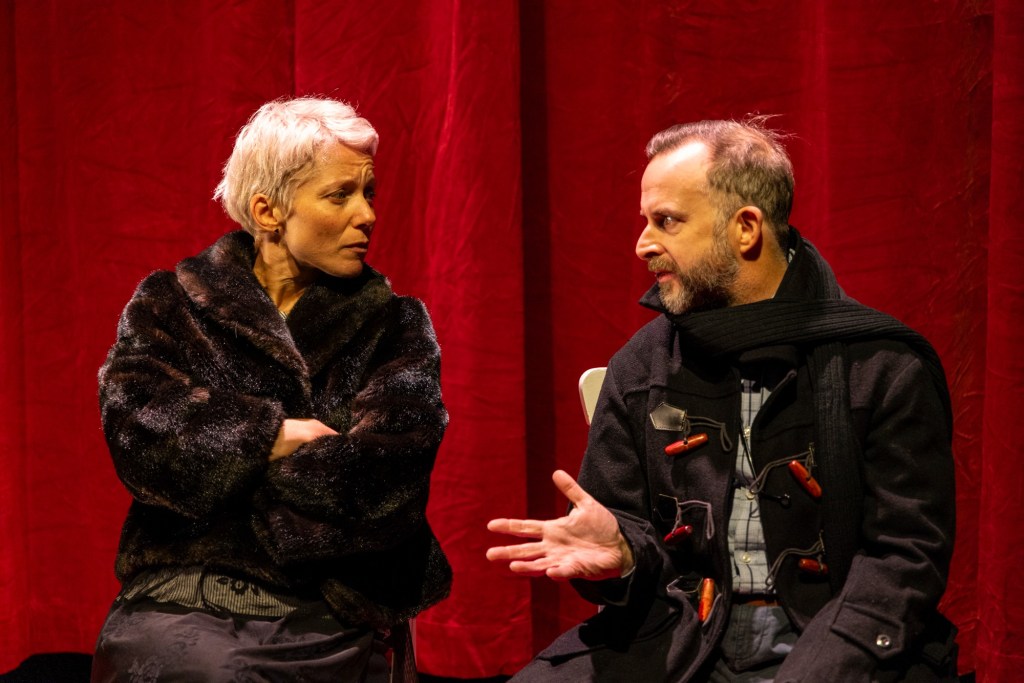Role play: Love lies bleeding … and a platypus
Multiple genres, two actors, one black comedy and possibly a platypus … it’s the Brisbane Festival production everyone will be talking about.

A play is about to start as a middle-aged couple inch awkwardly and apologetically past their neighbours to take their seats at the end of the row.
From the very beginning of The Platypus, the audience is in on the joke, and can see themselves in the story. What’s more, writer and director Francis Greenslade quickly reveals the structure of his creation – short, pithy scenes that make sense in and of themselves, but also connect to form a bigger picture.
We are introduced to Jess (Rebecca Bower) and Richard (John Leary) one morning at their home. There are misunderstandings and microaggressions as the couple rush through their breakfast routine to prepare for the day ahead. They have a young son, but their paths appear to be heading in different directions.
Save for some minor rearrangements to the furniture, Sarah Tulloch’s kitchen table set does not change for the show’s 90-minute duration. Nor does it need to, as the judicious use of the curtain (and Clare Springett’s lighting design) transport the characters to the school drop off, their workplaces and wherever else the plot demands.

Greenslade is well known for his work as an actor and comedian and has been a regular collaborator with Shaun Micallef since their university days. The platypus astounded British naturalists, who assumed this unlikely creation must be a fake. Greenslade has assembled his first play accordingly – taking inspiration from certain periods, celebrated playwrights and much-loved theatrical conventions. (The list of 24 micro scenes, handily included in the program, includes “Limericks”, “Restoration” and “Beckett”.)
Shakespearean meter weaves its way artfully into multiple scenes. There is a triumphant Oscar Wilde moment featuring Bower as a modern-day Lady Bracknell (The Importance of Being Earnest). A Greek chorus is used to considerable effect. (Noël Coward is not named, but his presence lingers, also.)
The Platypus is many things but is foremost a biting commentary on two people who no longer love each other
Miraculously, most of the pieces in this metatheatrical experiment fit into place. One scene, incorporating the canned laughter of the sitcom genre, does not.
Subscribe for updates
The Platypus is many things but is foremost a biting commentary on two people who no longer love each other. Greenslade does not gloss over their imperfections, making them more relatable in the process. Richard is revealed to be petty and homophobic, while Jess is impatient and carries her share of secrets.
Bower and Leary must carry the weight of the production, and are convincing together. Both actors also succeed with surprising monologues that commence with humour, but end in pathos. (Given the source material, the required accents are diverse, and Bower acquits hers with greater confidence.)
The Platypus is a self-aware piece of theatre that avoids becoming smug or condescending. It fits the Cremorne Theatre like a glove and, unlike its protagonists, should happily travel the festival circuit for years to come.
The Platypus plays the Cremorne Theatre, QPAC until September 13.
Free to share
This article may be shared online or in print under a Creative Commons licence

